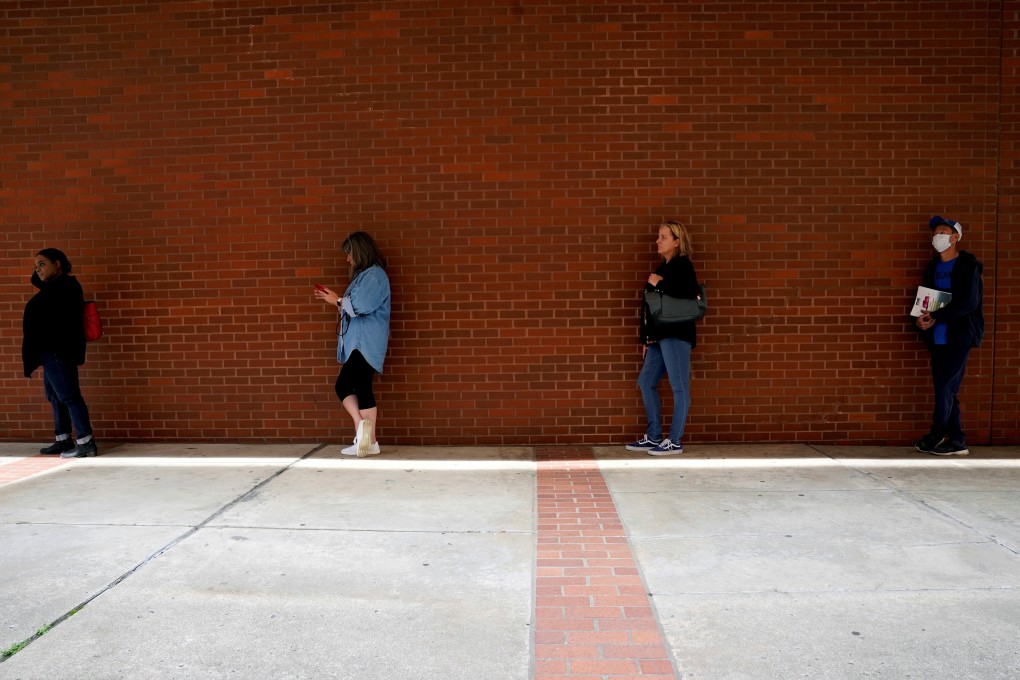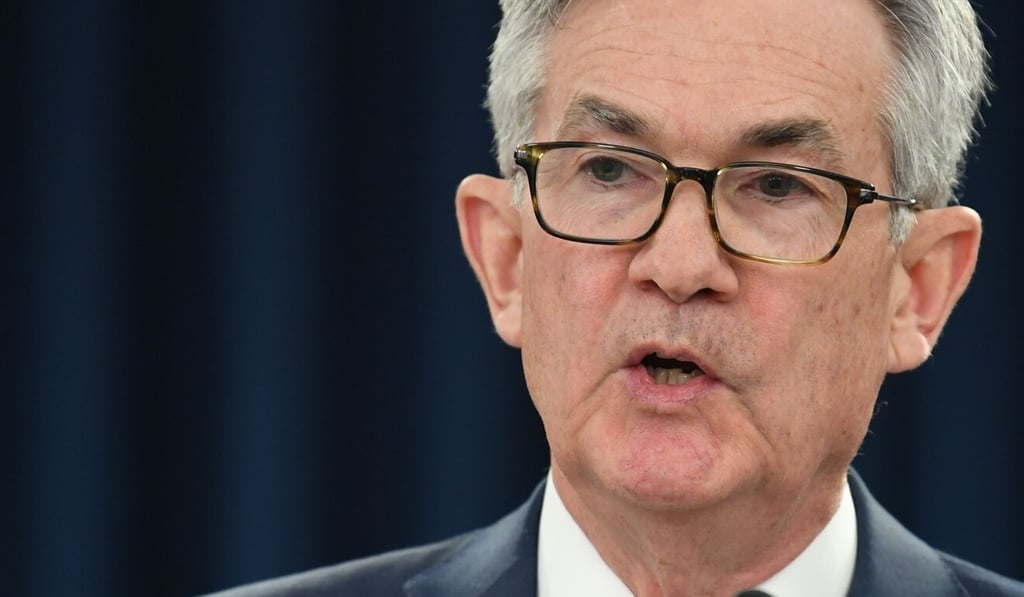Coronavirus: US faces severe crisis, but not depression, Fed chief Powell says
- World’s biggest economy could ‘easily’ collapse by 20 to 30 per cent this quarter, US Fed chief says
- More than 36 million Americans have lost their jobs since February as the economy shuttered to limit virus spread

Federal Reserve Chair Jerome Powell expressed optimism that the US economy can begin to recover from a devastating recession in the second half of the year, assuming the coronavirus doesn’t erupt in a second wave. But he suggested that a full recovery won’t likely be possible before the arrival of a vaccine.
In an interview with CBS’s 60 Minutes on Sunday, Powell noted that the economy was fundamentally healthy before the virus struck suddenly and forced widespread business shutdowns and tens of millions of lay-offs. Once the outbreak has been contained, he said, the economy should be able to rebound “substantially”.
Powell offered an overall positive message while warning that it would take much longer for the US economy to regain its health than it took for it to collapse with stunning speed.

More than 36 million Americans have lost their jobs since February as the economy shuttered to limit virus spread. Countless companies, especially small businesses, are hurtling toward bankruptcy, while states and cities are confronting gaping budget shortfalls that could provoke a massive second wave of lay-offs from the public sector. The unemployment rate, at 14.7 per cent, is the highest since the Great Depression, and is widely expected to go much higher.
But the Fed chief said people should never “bet” against the American economy and firmly played down suggestions that it faced a second Great Depression.